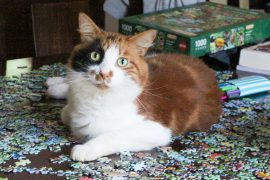This post is part of the series Lockdown
Other posts in this series:
- Week one of lockdown: reflections from the couch
- End of lockdown lite, upgrade to lockdown pro (Current)
- New routes to resilience- lockdown 4 and beyond.
I have been doing online consultations since March 16. I have had the unique privilege of seeing how a few of us have been handling this lockdown thing.
On the whole, my patients have understood the reasoning for the lockdown and have been committed to doing their part.
Some have responded energetically. They baked bread, joined online courses, built puzzles and relished the family time. These super busy responders expounded on what a relief it was not to be running around all the time… and then promptly filled their hours with a similar busyness. They have been a little miffed with others, like spouses, who may have responded in a more languid way. On the couch.
Others have responded with more determination to take it slow. They told me what a relief it was to be catching up on sleep and invariably bring up Tiger King somewhere in the session. They are slightly irritated with the social media pressure to “make use of this time” and are determined to “grieve for a loss of a way of life”.
I have come to understand both these responses as normal. The first has a solid dose of anxiety underlying it and the second an undercurrent of depression. My patients with both these coping styles hit a solid wobbly with the announcement of the extended lockdown, and the uncertainty as to when (or whether) life would return to normal.
It is the nature of coping strategies to work well, and then not. My busy patients can’t keep up this pace forever and neither can my chilled patients. We have to settle into a new normal. Besides which, the world expects us to continue. Kids are getting online schooling. “Doing what I can” is no longer good enough for some bosses who are figuring out what can and what can’t be done remotely.
Again our plans have been disrupted. Underlying anxieties become louder and depressions becomes more acute.
In this ever-changing landscape, I find it difficult to make plans to help contain my anxieties. But listening to my patients, I have realised that there are ways of dealing with the now.
Have a routine
One of my patients, who is facing significant financial uncertainty, said that the thing that has helps her remain sane is having a solid structure to her day. She does not know what her income will be going forward, but by having a routine she is able to get things done through the day, instead of getting overwhelmed by uncertainty. It seems that she is on to something. Breaking up our days into sleep/ eat/ work/ play/ exercise times is endorsed by everybody from the Navy Seals to behavioural psychologists. It certainly is better than struggling to get out of bed because the day stretches ahead you in a meaningless void.
Get dressed
I have had to smile at the number of shirtless or pj consults I have had with patients. It felt like we were enjoying the loose social norms. But as lockdown 2 started, not getting dressed has more and more become an indicator of depression. Initially, when I started tele consulting, I was very worried that I would miss subtle cues. It seems as if the current situation has allowed for a magnification of those cues. Trust me when I tell you, if you aren’t getting dressed you are getting depressed.
Eat properly
Food has become a big part of our lives. It is our main routine at the moment. One mom told me that her family is eating faster than she can unpack the dishwasher. Another patient told me that she is wearing her mask indoors to stop herself from eating all the time! Most of the families out there seem to be getting freshly baked bread and lots of veggies as moms try to boost their kin against The Virus. But getting a balanced diet is harder for my single patients who are cooking for one, made even harder by the rules on Woolies chicken. We know that eating too much processed food makes us feel naff, even more so now that we aren’t moving much.
Move more
We can’t go outside. We can’t go to the gym. It’s been rough on my patients who are fitness addicts, it’s been rough on those who “take the stairs”. It seems as if most of us had resigned ourselves to this for lockdown one. But now with lockdown two stretching ahead, it’s worth remembering that we are all getting much less movement than before. We are losing tone and lung capacity. For mental resilience and physical toughness, we have to up our exercise game.
Take a moment
The parents in my practice are busy feeding their families, home schooling, cleaning and working. Those that live alone are struggling with isolation which tends to make all days roll into one. Some describe a mix of busyness and boredom. My patients who have incorporated a mindfulness practice, whether it be prayer, meditation or journalling, manage to stay focussed and present better, regardless of their challenges.
Connect
It feels like connecting is a dirty word in the age of social distancing. By and large my patients who are locked down with loved ones describe thoroughly enjoying it. Even if mom is driving them crazy and cabin fever is making them irritable. It is really tough on my patients who live alone. One of my patients balked against my suggestion of her reaching out to friends over social media, because it made her more anxious. As we chatted further, it transpired that she was getting caught in all the social media rabbit holes. When she limited her social media exposure and set up WhatsApp calls with specific people, things improved. Using social media as a telephone, not as a platform, seems to be key.
There is nothing new in these recommendations. (Ok, maybe “getting dressed” did not have to be spelled out before). They are the bones of resilience psychology and have been proven to work. We are living in challenging times. My patients are telling me that we can do this.
Continue reading this series:
New routes to resilience- lockdown 4 and beyond.





